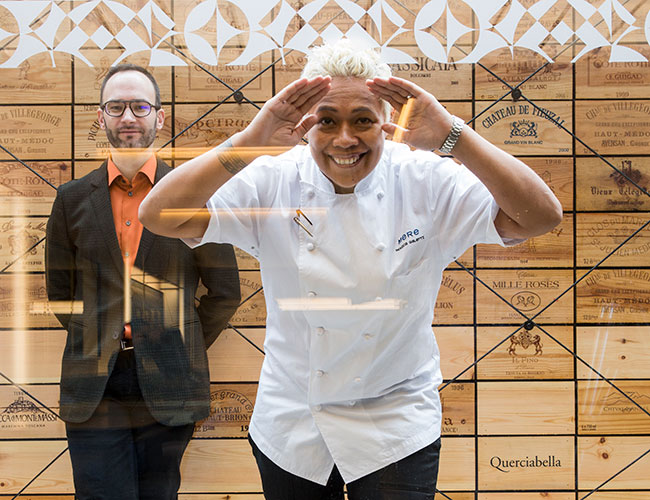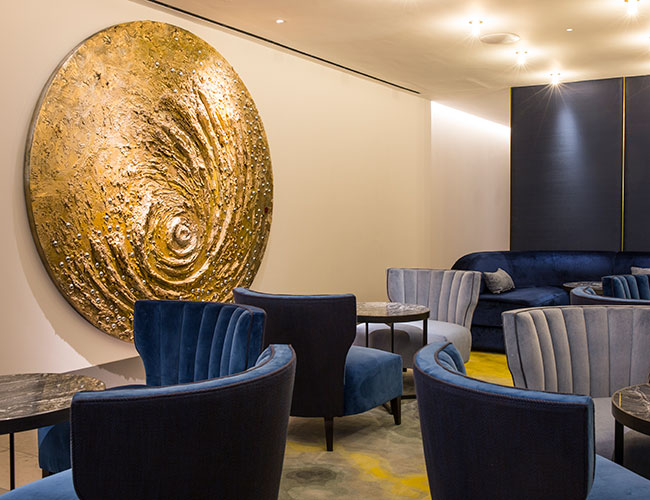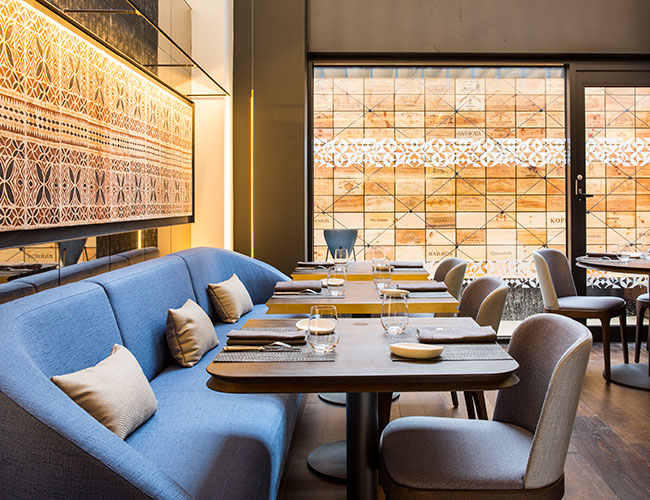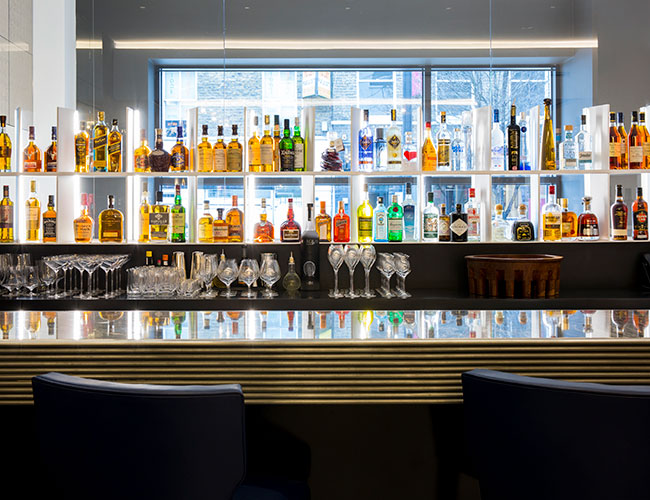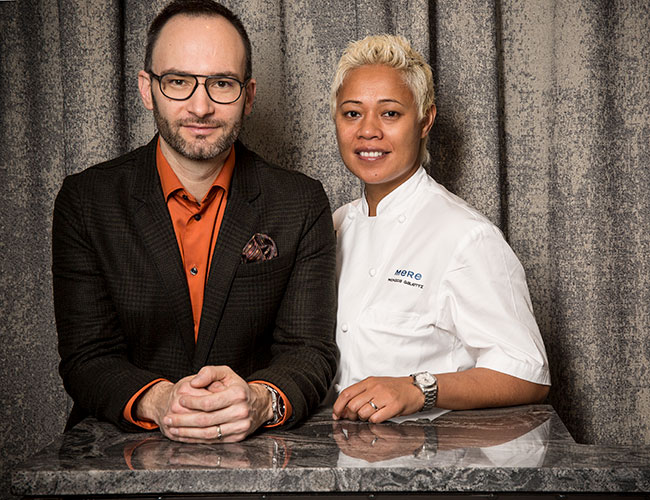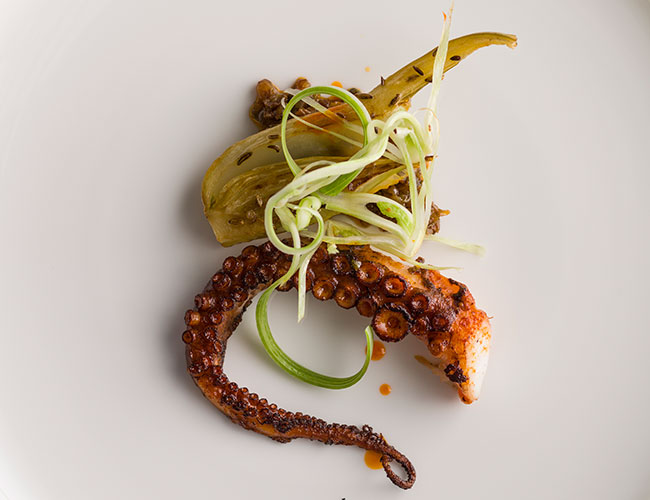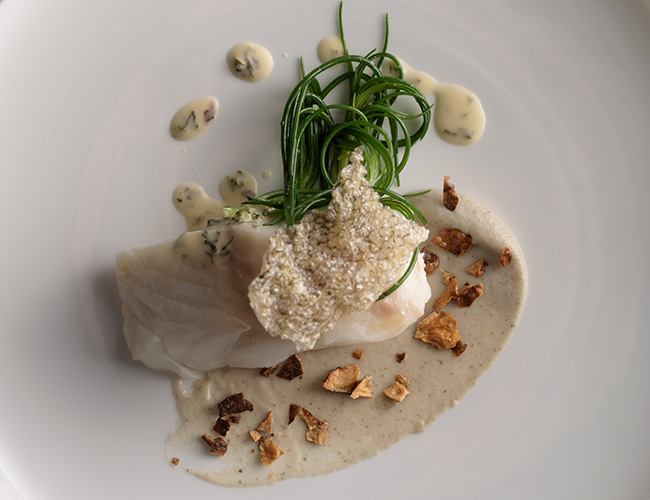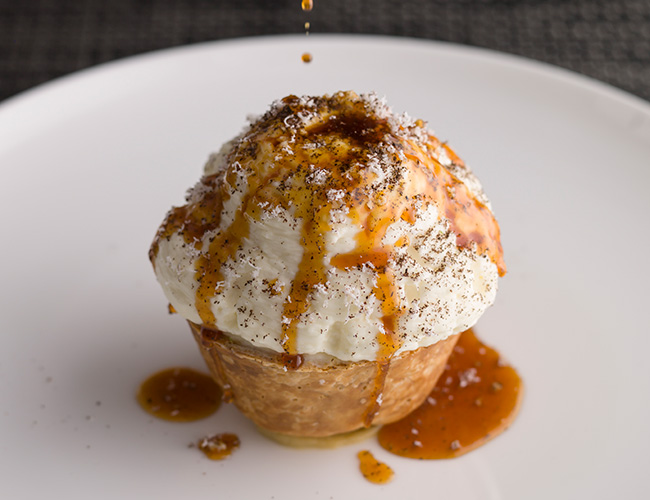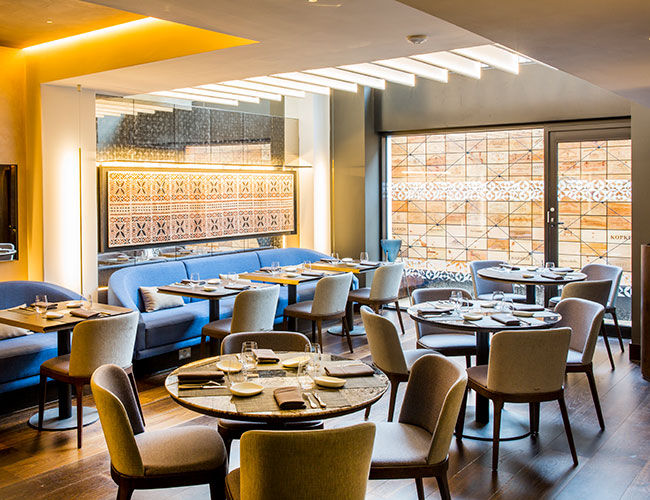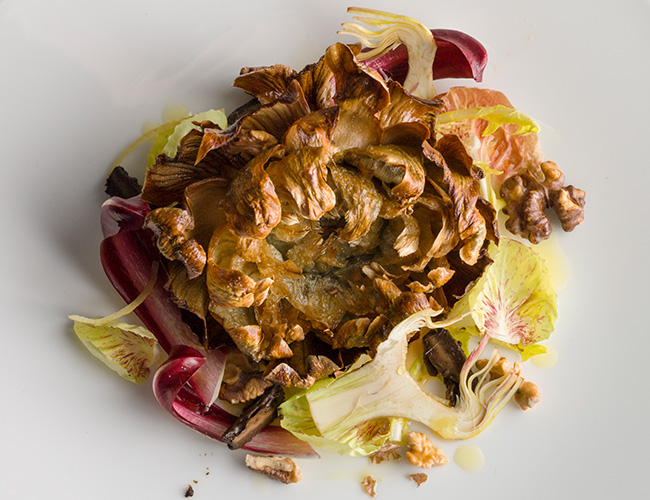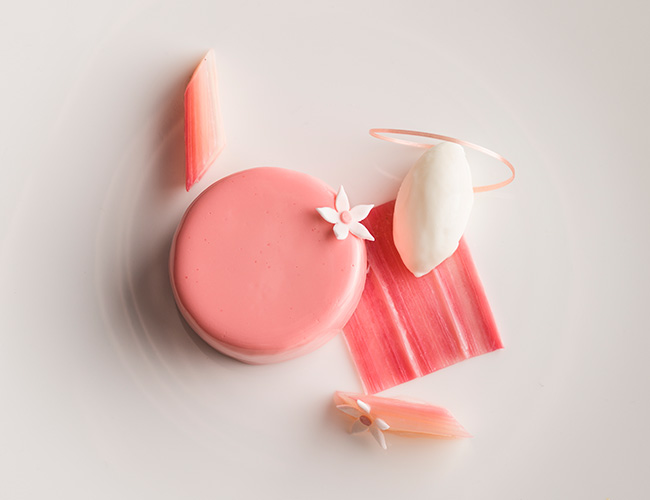Mere: we take a tour round Monica and David Galetti's new restaurant
Janie Manzoori-Stamford joins them just days before they open the doors
"I'm a control freak - funnily enough," says Monica Galetti. "I had a hand in everything: the lighting, the colour on the walls, the cutlery - right down to the playlist." As Van Morrison declares it a fantabulous night to make romance, it's the kind of musical standard you can imagine setting the scene for an intimate meal at home, with good company, delicious food and fine wine.
For Monica and her husband, David Galetti, that is exactly the mood they are going for with their restaurant debut, Mere, which they are opening in partnership with WSH. They seem to be road-testing the restaurant's vibe during The Caterer's visit and are completing the final frantic preparations for its 6 March launch - although, to all intents and purposes, the restaurant looks ready, just shy of a month to go at the time of writing].
With nearly 30 years between them at 'Le Gav', under the tutelage of industry luminaries Michel Roux Jr and Silvano Giraldin, such influence is to be expected. But by becoming restaurateurs, the Galettis have the opportunity to realise their own hospitality vision.
So what can we expect from this family affair in Fitzrovia, two doors down from Bubbledogs? And how did a pair so firmly ensconced in the fine-dining world find themselves falling into bed with the UK's largest independent catering group?
Keeping it personal
"I want to see that marriage of us in the food and the wine," says Monica. "It's not just mine; it's David's too."
The emphasis is unsurprising. She is the most recognisable of the two, thanks to her shock of platinum hair and nine years as a formidable and discerning judge on the BBC's MasterChef: The Professionals - a role she is set to stay on in for this year, at least.
Her point is justified. The couple's professions, passions and personal histories are reflected throughout the restaurant, from Monica's menus and David's wine list to Mere's contemporary interior, which is studded with work by the couple's favourite artists (see Spotlight on art and design, below). For Monica, the menu (see From the menu, below) is an expression of her personality. "What you'll find on the plate is an accumulation of years of influences on my cooking: a bit of French; New Zealand, where I'm from; and Western Samoa, where I was born. I like to introduce a bit of all of them in a modern and uncomplicated way," she says.
A dish dubbed 'New Zealand boil-up and doughboys' sums up the extent of this culinary aim. This traditional Kiwi dish comprises various cuts of pork and a selection of vegetables including kumara (sweet potato) and pumpkin.
"It's likes a big pot-au-feu," says Monica. "Then at the end, you drop in fresh puha, which is really peppery and strong wild watercress, and dumplings, which are called doughboys. I'm serving my refined take on it as a starter - Kiwis will probably piss themselves laughing at the portion size!"
What wine would David pair with this dish? "A lovely Pinot Noir from New Zealand," he suggests, appropriately.
e Á la carte menu, featuring six starters, six mains and six desserts, sits alongside a tasting menu, a weekly-changing lunch menu, and a chef's table menu that will change monthly. The idea is to be inclusive, with an offer to suit all budgets and all demographics. The toilets even have baby changing facilities (although there are no high chairs available). This ethos is also reflected on David's wine list, where around 50 of the 200-odd wines will be available by the glass.
"First of all, we want to give choice," he says. "If you don't have it on offer, you won't sell it. We use the Coravin system [where wine can be poured from the bottle without removing the cork], which gives our guests access to very special wines by the glass or in a carafe."
Business benefits The realisation of the couple's ambitions was facilitated in no small way by WSH. It was a partnership borne out of a lunch between company director Simon Esner and Monica in December 2015. At this stage, the Galetti's were already in talks with investors to further their dream of opening their own venture.
Esner suggested WSH throw its hat in the ring and a new set of wheels were swiftly put in motion when, a week later, the couple met chairman and chief executive Alastair Storey.
A long search for a suitable site ensued. "We visited just about every corner in London, Galetti says. "We knew we wanted to be around Marylebone, because it's very close to where we used to live, but we never thought we'd be able to get on Charlotte Street. There was a lot of competition and it dragged on for a few months. I think at the end of it, Alastair got fed up and decided to take the whole site. Initially, it was just the ground floor and the basement that were available as a restaurant, with apartments upstairs. That was a separate lease altogether, so Alastair is our landlord!"
WSH had already tested the water of high-end restaurants led by notable chef-restaurateurs, such as John Campbell's the Woodspeen in Berkshire. The move signalled the start of a new chapter in its burgeoning empire, which was further developed last year when it entered into a joint venture with chef-restaurateur Mark Hix.
For Monica and David Galetti, the benefits of securing backing from an organisation like WSH and a savvy business leader like Storey are innumerable. Monica says: "Alastair has let us get on with it - it's 100% ours. But he has given us the support and the key people to teach David and me how to open and run a business. They have the back of house infrastructure - health and safety, permits, tronc systems - which we've adapted to fit. I wonder how people do it without such support."
For first-time restaurateurs, theirs is clearly an enviable position. So are there any downsides? "The difficulties we've experienced are things like the chain [of command] that we have to go through. We're used to getting things sorted then and there - boom," she says.
"For example, WSH has a nominated supplier list, and if we want to use a supplier, it has to be on it. That's been quite tricky at times, if the supplier hasn't filled in the right form or whatever. But once they're on, it's amazing. So it's a very little gripe."
Loyalty points
The support from WSH has been invaluable, but implementing systems and processes from scratch remains no mean feat, especially when the team will be scheduled to work four days on, three days off.
"Getting a rota like that to work takes commitment, and it includes kitchen porters, cleaners - everybody," says Monica. "We believe in making sure our staff are happy and offering a fair salary. A damn good salary, to be honest."
Was this staffing prompted by the hot water her mentor found himself in last year? Michel Roux Jr was targeted by The Guardian in a number of articles that aimed to expose poor pay and service charge practice, so concern that one of his best-known protégés might come under scrutiny is understandable.
"No, this was always the way we were going to work," she says. "We've been in the industry a long time. We both started at the bottom and know how hard that can be in London. Also, when you work with Michel, he rewards you for your loyalty as you grow in the business. I was lucky to get my foot in the door. It's a shame if it becomes all about how much you can earn and not how much you're going to learn. That's the same in any industry."
Monica makes no bones about the excellent standards she and David will demand from their own team, but she is also fiercely protective of them - especially now, with so many hailing from overseas and concerns about their ability to stay post-Brexit.
Continue reading
You need to be a premium member to view this. Subscribe from just 99p per week.
Already subscribed? Log In



